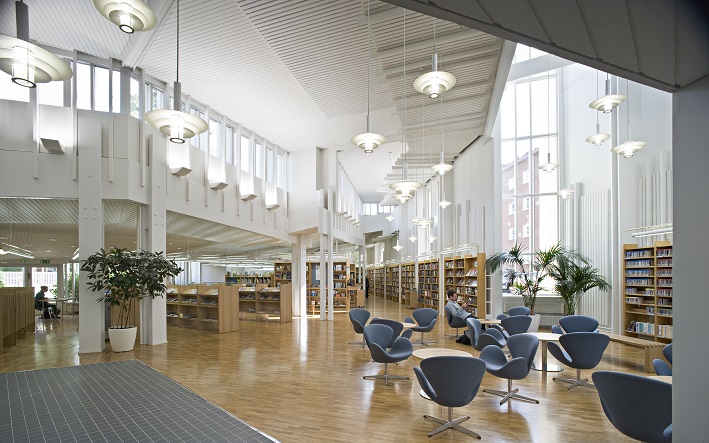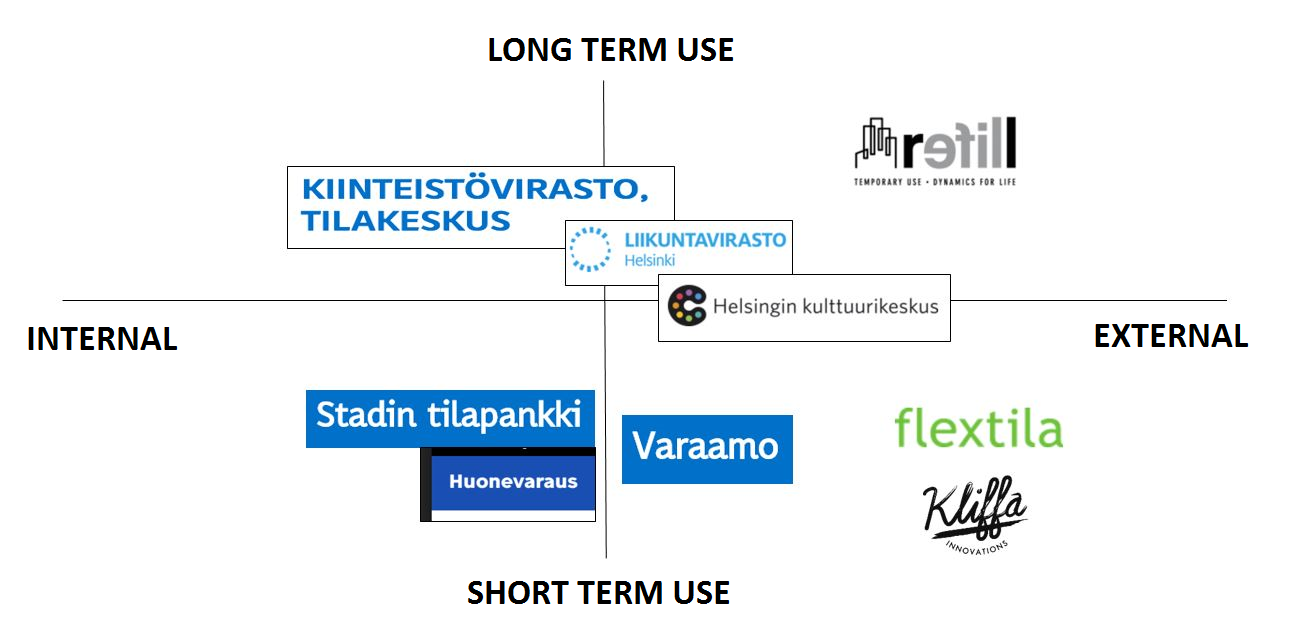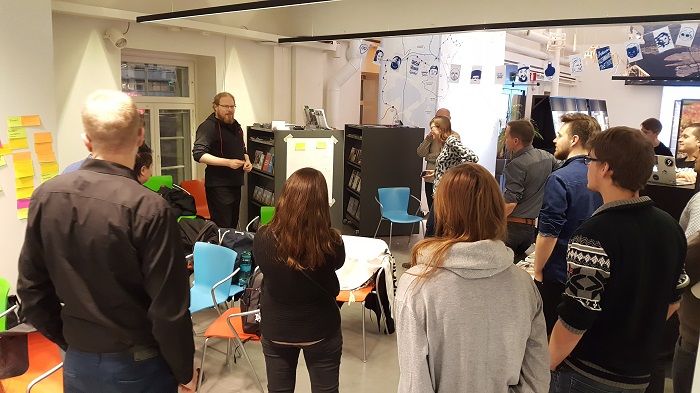Available public spaces! Integrate them into your service?
Cities possess hundreds of public spaces, premises and equipment – for example, the City of Helsinki has about 3000 buildings. Use of public spaces can be optimized but it requires real-time availability and reservation information. Now, with Helsinki’s recently opened resource reservation API, relevant information on the availability of a selection of the city’s public spaces is available.
Public spaces and resource reservation methods was the theme of first Helsinki Loves Developers open data open office in 2017. Participants brainstormed improvements to data collection methods and discussed methods for optimising collected information of available public spaces.
Find available public spaces via resource reservation API
Public spaces were already discussed a year ago, during an earlier open data open office. First steps were taken and piloting of the resource reservation API began. Also, development of the Varaamo -service (the city’s open spaces reservation interface) was started. Since then, a lot has happened: the resource reservation API is openly licensed and the number of public spaces and equipment it offers has increased.

Currently, the new ambitious goal is to add almost all of the city’s public spaces, premises and equipment. Obviously, not all spaces can be added. Standardisation of the reservation process and testing various payment methods are under development, according to Jenni Niemiaho, City of Helsinki, Executive Office. Similarly, Digital Helsinki -program’s Tilat avoimiksi (tr. “open public spaces”) – topic is experimenting with new tools. Its aiming to accelerate the birth and deployment of new reservation services.
There is growing internal and external (public) demand for short and long term use of public spaces and equipment. Under the Tilat avoimiksi -topic, there are multiple projects ranging from reserving city employee’s work stations to universally available public premises. More public spaces for the resource reservation API are being sought. Thus far, a lot has been accomplished and valuable lessons have been learned. Outstanding hurdles, such as access control of the spaces, security issues and the optimisation of the reservation process are under continuous development.

There is demand for different types of spaces; for short and long term use, both internally and externally.
There are plans to roll out the resource reservation API to other cities in Finland. To increase business potential of open data and open interfaces, the six largest cities in Finland are closely cooperating in the Six City Strategy Open Data and Open Interfaces -spearhead project. One key area of this strategy is to harmonise APIs and to build a stronger platform for business opportunities. The resource reservation API is one out of four APIs that will be harmonised during the project. Project Manager Annukka Varteva, from Forum Virium Helsinki, described how equivalent resource reservation APIs are being deployed in all six cities during the oncoming spring. The API specifications have been drawn up in close cooperation with potential companies and other end users.
Natalia Reen from Forum Virium Helsinki, talked about the flex space-pilot in Kalasatama. This pilot experiments with concepts for finding available spaces and applicable reservation and payment methods. Insights gained from this pilot are utilised in the process model, which can be deployed into other areas in Helsinki. Miika Mutila from Tolotech Oy, demonstrated various smart solutions for access control of public premises through a combination of smart doors, locks and IoT -devices. Some of these solutions have already been piloted in Kalasatama and piloting them with the resource reservation API is being planned.
Ideas for mapping available public premises
Towards the end of the open office, participants brainstormed methods for identifying empty or disused spaces, for example, by using available open data sets. Ideas on how empty spaces could be added to the resource reservation API with the help of digital tools were gathered.
Methods for identifying vacant spaces included the analysis of energy consumption data and tongue-in-cheek methods of crowdsourcing, such as using traffic wardens or thermal video imaging of buildings. Also, ideas included using the service point- and other registers, or the 3D City Model, which could integrate the usage time of various spaces. In other countries, empty public spaces have been identified through patrolling the city and using occupy me -stickers, as well as other crowdsourcing methods.
Potential empty spaces (part or full-time), such as empty business properties, sports facilities, gyms, restaurants and University spaces, which could all attract different user groups were identified. Also spaces of businesses’, unions and societies could be of interest – just like empty apartments.

Brainstorming resulted in drawn outlines of prototype search engines for empty spaces. A striking similarity shared between all prototypes was the use of a map-based approach, which enables a real-time overview or allows searching based on the user’s needs. It would be possible to implements some of the ideas straight away, since the resource reservation API is already open.
Development of the resource reservation API continues
The development of the resource reservation API continues in Helsinki and elsewhere in Finland, in tight cooperation between the cities and municipal departments. Feedback has been positive.
Similarly, development of the Varaamo -service will be continued with increased speed. The goal is to improve usability and solve issues in relation with the reservation process. According to Varaamo’s service manager Juho Kerppola, current plans include developing a map-based user interface and investigate access control systems, as well as possible online payment methods. Cooperation will be continued with Flextila and Kliffa, which also offer similar reservation systems.
– During the meetup, it was enjoyable to gain new acquaintances, who also are interested in public spaces and the technical solutions associated with them, highlights Kerppola, speaking after the event. Furthermore, the presented smartlock systems were an item of interest, as it enables piloting different types of autonomous access control mechanisms in the Varaamo -project.
Presentation materials
- Jenni Niemiaho: Tilat avoimiksi -teema osana Digitaalinen Helsinki -ohjelmaa
- Annukka Varteva: 6Aika-resurssienvarausrajapinta
- Natalia Reen: FlexSpace Ecosystem
- Miika Mutila: Avoimet rajapinnat – tilat tehokkaiksi älyovilla
- Maija Bergström: Refill
Do you have thoughts or questions on the topic? Looking to use Respa-API in your service or want to cooperate? You can either contact us directly via email (hri [at] hel.fi) or write a comment below. We will gladly tell more about Respa-API and the Varaamo -service to everyone interested in their use or seeking cooperation.
Translated by: Kaarlo Uutela

Leave a Reply